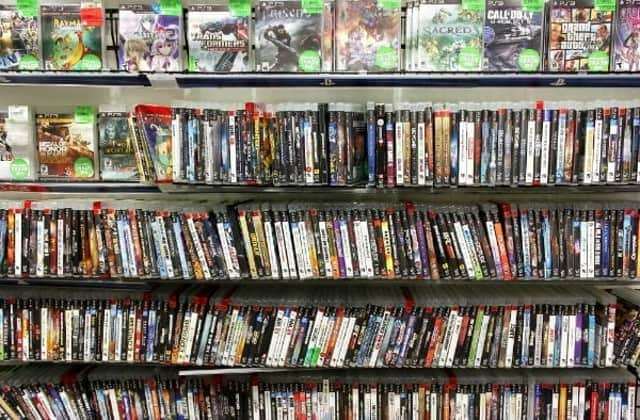Poundland selling video games for £5? It's the 1980s all over again


The news that hundreds of Poundland stores throughout the UK are selling refurbished second-hand video games for just £5 will be welcomed nostalgically by any gamer of a certain age.
Because while it is often easy to forget, there was a time when even the biggest new video games could be picked up for just a few coins.
Advertisement
Hide AdAdvertisement
Hide AdIn the late '80s and early '90s, when I was barely tall enough to reach some shop counters and had just £1 a week pocket money, I used to go with my parents to an independent electronics shop in Keighley in Yorkshire on a Saturday morning.


What lurked inside was wondrous.
I would scour the overflowing shelves in a certain corner of the store, where an array of colourfully illustrated cassette tapes (yes, tapes!) lay waiting to be discovered.
For just a few pounds (usually as little as £1.99 or £2.99, rarely more than £4.99), I could pick up games with which to feed my creaky ZX Spectrum.
Back home, I knew, I would stare transfixed at the hypnotic, buzzing, screeching loading screens for what seemed like an age; braving the minutes of static in the certain knowledge that what would be waiting on the other side might, just might, be exciting, colourful and fiendishly challenging to master.


There were classics like Treasure Island Dizzy, and R-Type.
Advertisement
Hide AdAdvertisement
Hide AdThere were also games whose names and memories are lost to the depths of time, that probably had a limited run of just a few hundred copies, and occasionally failed to even load properly.
In many ways, this was a hallowed time for gaming. When bedroom programmers and small teams of developers would lovingly craft experiences that were as much for themselves as the waiting audience.
When the cost of production and distribution was cheap. And so were the games.


The dawn of the PlayStation
From the early-to-mid-90s, however, there was a colossal pricing shift with the rise of the bona fide gaming consoles. The SNES. The Mega Drive. And of course, at the end of 1994, the dawn of the Sony PlayStation.
Advertisement
Hide AdAdvertisement
Hide AdDuring this time, it soon became common for new games in the UK to hit the market priced at £40 or even £50.
The shift was such that the 'Platinum' range on the original PlayStation, where brand new discs of popular, best-selling titles could be picked-up for £20 apiece, felt like a genuine bargain.


We all loved Crash Bandicoot - but it took a lot of pocket money to get him (Photo: Naughty Dog/Sony Computer Entertainment)
Within the space of several years, I went from picking out new games for just a few coins most weekends, to attaining a new one only on birthdays, Christmas or after I'd saved up for months on end.
Advertisement
Hide AdAdvertisement
Hide AdOf course, there's a reason why games became so much more expensive during this time.
They surged in production values, graphics and scale. 3D became a reality. And developers needed far more hands on deck for longer stretches of time - as well as access to more expensive technology.
Soon designing games began taking teams of dozens. Then hundreds. They began to cost many millions to make - and the cost was invariably passed on to the consumer.
A price drop to come?
Today, there is an ongoing row over the price of new video games on the market, when £50 or more is routine, and yet companies also charge for additional downloadable content and extras.
Advertisement
Hide AdAdvertisement
Hide AdThis has led games critic Jim Sterling to publicly challenge the accepted pricing model of new video games only this week.
They may be spectacular. But modern games like Zelda: Breath Of The Wild cost around £50 at launch
Of course, there are still video games that can be picked up cheaply these days.
Indie games - which have produced some of recent years' most spectacular experiences - are often priced much more modestly than their more mainstream counterparts, even at release. And online there is a thriving community of entirely free 'flash' games, among other wonders.
Advertisement
Hide AdAdvertisement
Hide AdBut it's a long time since brand new, major video games releases were so widely affordable. Especially to kids.
While the graphics, scope and possibilities of games have moved on to an almost unfathomable degree since then, and the ambition of many modern creations is simply staggering, the child in me still likes the idea of going into a shop with nothing more than pocket change, and walking home with a plastic carrier bag full of new virtual worlds to discover.
This article originally appeared on our sister site, iNews.